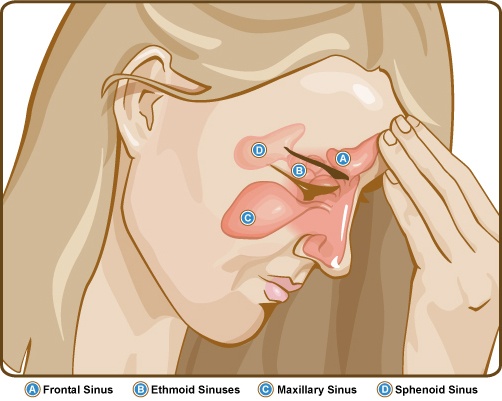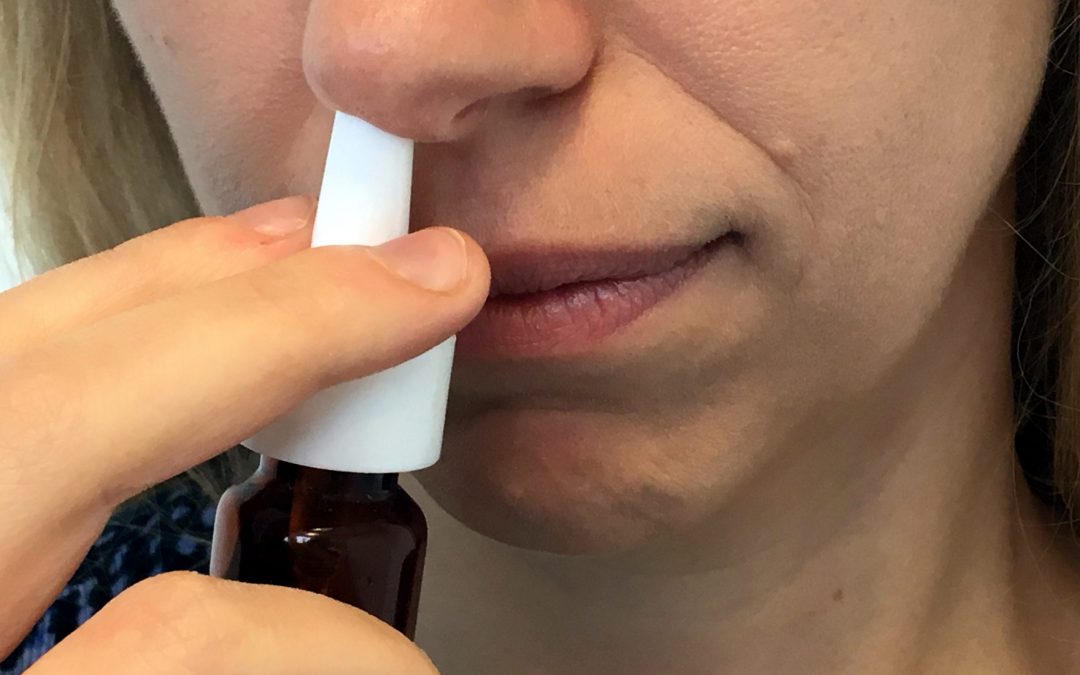What to do if you have sinusitis? Some symptoms for this illness will include runny nose, sneezing, itchy nose, stuffy nose, as well as watery and itchy eyes. If these symptoms will be worse, it completely is up to the reaction to allergens as well as the individual. What to do if you have sinusitis? Some people experience just mild symptoms occasionally, but some will experience these symptoms year – round. What to do if you have sinusitis? To fully diagnose allergic rhinitis, you need to know the physical examination as well as a good history, if you are only experiencing mild symptoms. You may need to undergo a skin prick test. In this test, doctors will check your allergic response to certain allergens. This test would involve the placement of certain substances on your skin. The doctor would see how your body would react to these allergens.

Are You Prone to Sinusitis?
Sinusitis symptoms must be gauged correctly else it can be mistaken for other conditions as the symptoms are very similar to cold and allergies. The symptoms are nasal discharge that is thick and yellow or green in color. You suffer from congestion so you may face difficulty to breathe through your nose and lack sense of smell. You may develop cough within a few days. There is sensation of pain near the eyes or a feeling of pressure on the face. When the sinus becomes swollen or has an inflammation then the sinus is infected and the condition is called sinusitis. This infection is caused by many factors such as allergens like pollen, smoke or fumes; some food types which irritate the mucous lining the sinuses.
What to do if you have sinusitis? You may be prone to a sinus infection just after having suffered a bad cold because; at this point your sinuses are swollen and the flow of mucus gets restricted. Nasal polyps which are basically unwanted growths; that begin to line the nose start obstructing the flow of mucus leading to swelling of sinus. Another cause of sinusitis is basic anatomy issues. Sinusitis caused by virus and rarely by bacteria or fungi.
Sinus is an air-filled cavity in the bones of the head. The human body has four sinuses- frontal which is above the eyes; maxillary that is in the cheekbone is between the eyes and sphenoid which is behind the nasal cavity and eyes. All the sinuses open up into the nasal cavity and have a protective lining of mucous just as in the case of the trachea. The function of the sinuses is to warm and humidify the air as it passes through the nose; and also lighten the skull thereby improving the human voice.
Mucus Overflow

What to do if you have sinusitis? Your face and eyes may appear swollen. Acute sinusitis symptoms will include fever too. Acute sinusitis last for four weeks or less while if its chronic, symptoms will include feeling confused; breathlessness, severe headaches, swollen foreheads, vision issues; and stiffness in the neck. What you have been thinking of as cold is taking much longer than a month to go away.
In certain cases when these medications don’t seem to alleviate the sinus infection the doctors; or more specifically otolaryngologists advise for proper diagnosis procedure followed up with treatment methods. If you are having repetitive episodes of acute sinusitis conditions then you definitely need to know about these methods. The diagnosis usually starts with examination of the sinus openings by sending a long; and thin tube having a light and camera at its tip through your nose. Though not very painful, for you to be comfortable an anesthetic nasal spray can be applied.
The other way is to analyze the mucus samples which helps understand whether the causal agent is virus, bacteria or fungus. A CT scan can help understand the extent of the problem; and a consultation with a specialist in immunology and allergy can help understand to what extent factors such as allergy, anatomical deviations or immune system influence your prevailing condition.
Is Sinusitis Life Threatening?
Though many people suffer from sinus infections things can take a bad turn leading to complication when the condition worsens. Breathlessness can cause asthma patients to suddenly get asthma attacks. In chronic cases the infection spreads to the eye socket, causing blurring of vision and in worst cases blindness too. Another highly complicated condition is when the infection spreads; to the fluid as well as membranes lining the areas around the brain and spine. This causes meningitis. Some cases blood circulation through the veins surrounding the sinuses is restricted; and forms blood clots that eventually stop supply to the brain. This essentially means that the patient is at a high risk of getting a stroke that can be life-threatening.
Time to Decongest
What to do if you have sinusitis? Nasal decongestants and antihistamines are some common short-termed treatment options available. However, the long term options are allergy shots and nasal steroids. You should not confuse nasal decongestant with nasal steroids; however, they are two different things.
Rhinitis medicamentosais a disease in which patients could be at risk, especially if they use nasal decongestants more than one to two weeks. This could happen when the decongestant will start to be irritated and your sinusitis will be worse. If you can’t fully manage your allergic rhinitis,you need to visit an ENT specialist. This would clear up the confusion about these matters. An ENT specialist would be able to help you to rule out some more serious sinus condition. This includes chronic sinusitis as well as polyps.
What to do if you have sinusitis? To control allergic rhinitis, you should consider immunotherapy. This therapy could be used for 15 years without ever needing medication! An added fact is that it can be used under the tongue, a process called sublingual immunotherapy. You are having a yellow or green nasal discharge, cough, a headache and when you speak, your voice is heavy. It is important that you are able to differentiate between the ailments; so that you can use appropriate means to alleviate you condition.


 I love to write medical education books. My books are written for everyone in an easy to read and understandable style.
I love to write medical education books. My books are written for everyone in an easy to read and understandable style.